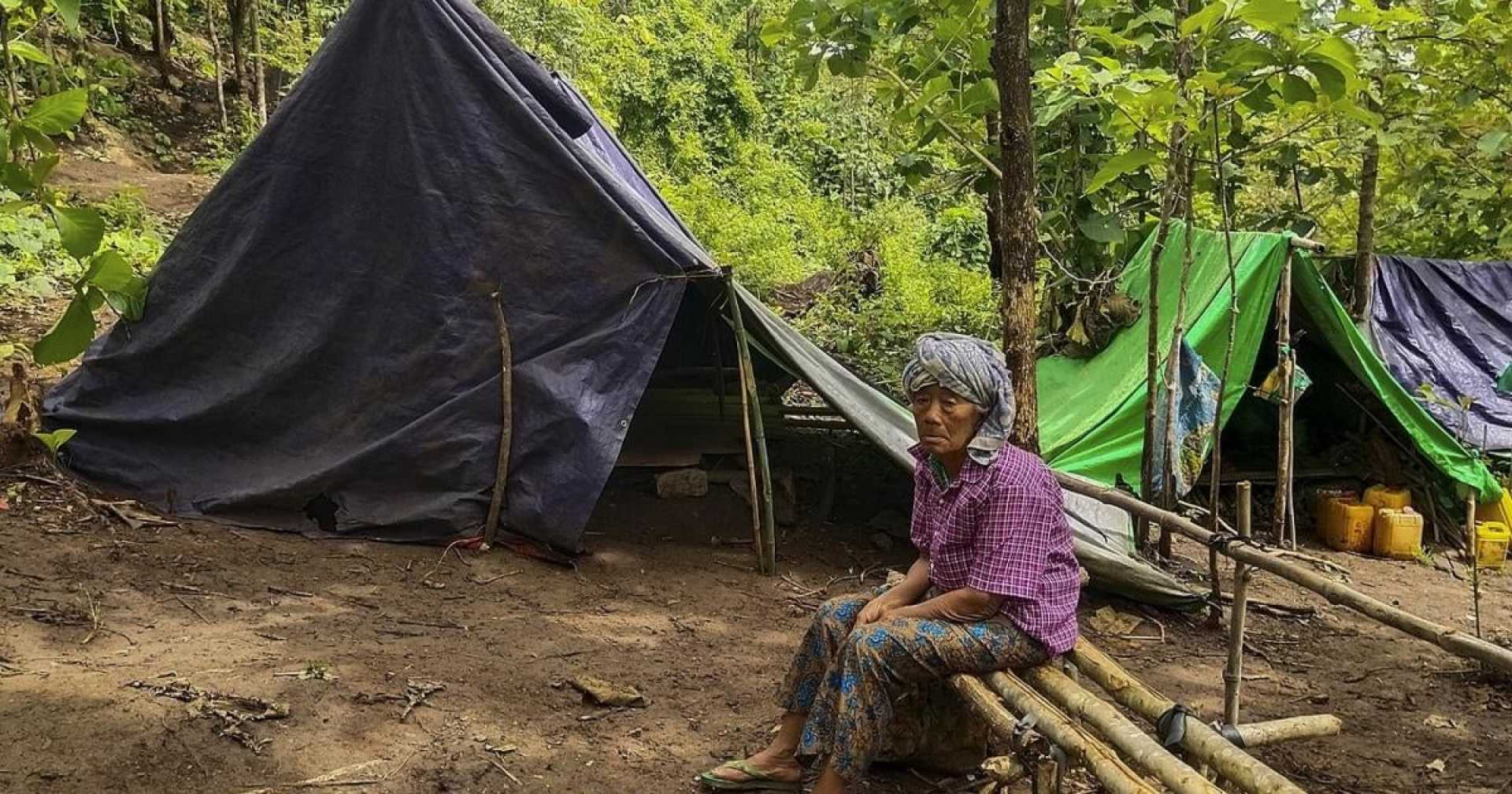News
Burma’s Plight: Displaced Families Endure Amid Ongoing Conflict

BURMA — More than three million people are enduring the realities of conflict in Burma, where a decades-long civil war has left vast numbers displaced and in desperate need of assistance. As the sound of mortars and artillery shells becomes a constant backdrop to daily life, the local population has adapted, learning to gauge the distance of incoming fire to seek cover when necessary. An estimated 3.5 million residents are now internally displaced due to unrest.
In Karenni State, the crisis is particularly acute, with over 80% of the population displaced. Many live in makeshift shelters constructed from bamboo and plastic, lacking the protection of international aid organizations. Conditions are dire, with more than 20 million people requiring humanitarian assistance across the country.
The State Administration Council (SAC) severely limits access for international aid workers and independent journalists, keeping vital resources from reaching those trapped in conflict zones. As a result, local organizations, particularly the Karenni State Interim Executive Council and faith-based groups like the Free Burma Rangers, have stepped in to provide essential support. These groups take considerable risks to deliver life-saving aid across the border.
“You’ll hear a change in pitch before the planes dive,” said one resident, reflecting on the ongoing airstrikes that target civilian areas. “It’s how we know to run for cover.” The local Catholic Church, represented by figures like Father Gabriele, is pivotal in providing education under constant threat. Schools are organized into groups to minimize casualties in the event of bombings.
“We divide them up into three groups,” Father Gabriele said. “This way, if a school is bombed, there are fewer casualties.” His commitment reflects the challenges many face, where limited aid results in inadequate supplies. The United Nations recommends refugees receive sufficient rice each month, yet many receive half or even less.
Basic healthcare access is alarmingly scarce, with only two hospitals operational in the region. In the meantime, the church employs volunteer educators and attempts to provide some form of education to children. However, frequent airstrikes pose additional dangers for transportation, further complicating the already challenging logistics.
In the midst of destruction, the community finds resilience. Temporary shelters line the roads, alongside shops selling everyday necessities. Despite the adversity, barbershops and small markets emerge as symbols of survival and adaptation.
“These makeshift shops offer everything from batteries to food. They’re essential for the community,” said Father Gabriele, pointing out the vibrant hustle within the displaced camps.
Karenni State, predominantly Christian, has suffered tremendously under the current regime. Bishop Celso Ba Shwe of the Diocese of Loikaw recounts how artillery destroyed cathedral facilities earlier this year. “We had almost 3,000 IDPs staying with us,” Ba Shwe said. “As fighting reached the compound, it became unsafe, and we had to move.”
Instructed by necessities, clergy have adapted, leading services in improvised temporary chapels. “Our churches are made of bamboo and plastic now,” the bishop said. The church provides crucial food assistance where resources allow, offering distributions to the most vulnerable populations.
In an overcrowded landscape where aid can barely keep pace with need, Father Gabriele holds mass under the constant threat of violence, often having to calm fearful congregants when planes appear overhead. “They are afraid,” he explained, but they return to worship as soon as it is safe.
Funeral rites have become a grim part of Father Gabriele’s responsibilities, following drone attacks that repeatedly target areas near churches. “It’s incredibly heartbreaking,” he noted, highlighting the loss of life among resistance fighters and community members, including many young individuals.
Khun Bedu, a military leader and former seminarian, shifts his focus towards public welfare within the displaced community, illustrating the church’s fundamental role in providing stability. “A lot of kids drop out of school at age 15 or 16. The Church can help keep them in school,” he said, advocating for collaboration among various religious leaders to navigate the complexities of governance and education.
Bishop Ba Shwe commented on the broader implications of the conflict, emphasizing that this moment in history presents a “time of universal conversion” and collective responsibility. “We must love and help each other,” he remarked, urging unity beyond national divisions to foster peace and shared support.












